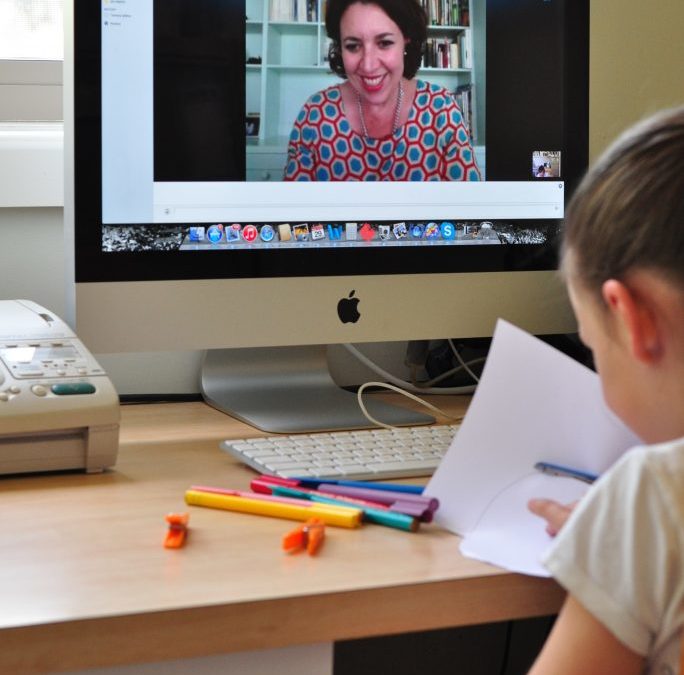Are you seeking stress-coping strategies for a calmer life? In this article, we share practical strategies to help effectively reduce stress. These are straight-forward, actionable methods to help you to achieve and maintain balance, nurture your physical and mental health, and create a routine complete with stress-busting habits.
Key Takeaways
- Prioritisation and Boundaries: Effective prioritisation of tasks and setting healthy boundaries can help you achieve a balanced life and manage stress.
- Physical and Mental Health: Incorporate regular physical activities that you enjoy into your routine to boost endorphins, manage stress hormone levels, and improve overall physical and mental health.
- Mindfulness and Meditation: Utilise mindfulness and meditation techniques to bring you back to the present moment, develop gratitude and build resilience.
Embracing a Balanced Life: The Foundation of Stress Management
The cornerstone of managing stress lies in a balanced life. Imagine a seesaw – when it is heavier on one side it causes the balance to be lost. Similarly, stress sneaks in when you don’t proportionately distribute work, relationships, relaxation, and fun in your life.
To get the right balance, start with evaluating your priorities to help manage your time effectively. When you’re clear on your priorities, it can make your daily tasks seem less daunting and more manageable. Finding balance is not just about work and tasks, it involves setting healthy boundaries between work and family life, social activities, health, fitness and downtime.
Prioritising Your To-Do List
When it comes to managing stress, prioritising tasks is your secret weapon to feeling on top of things. Focusing on high-priority tasks first can make your day smoother and more enjoyable. Here are some steps for how to achieve this:
- Write your tasks down with their deadlines.
- Rank them by importance.
- Estimate the time each task will take to complete and be realistic!
- Schedule them in your calendar.
Following these steps can effectively prioritise your tasks and manage your stress levels. Of course, you need to adapt to changes as they occur but try and stick to your schedule so that you get the most important things done.
This simple strategy helps prevent procrastination and reduces the stress associated with task organisation and prioritisation.
Establishing Healthy Boundaries
Boundaries are not walls meant to keep people out but bridges to better wellbeing. Learning to say ‘no’ and being willing to delegate are essential steps in establishing healthy personal and professional boundaries. Boundaries help to stick to your schedule and reduce stress, preventing inner conflict and feeling overwhelmed.
Setting clear boundaries paves the way for improved physical and mental health, contributing to a calmer and less stressful life.
Physical Activity as a Pillar for Stress Relief and Prevention
Have you ever experienced that euphoric feeling after a good workout? That’s your body’s way of thanking you for the dose of endorphins, which boost your wellbeing. Regular exercise balances the nervous system, increases blood circulation, and helps flush out stress hormones.
Not feeling so fit? We can promise you that you don’t need to become a marathon runner or cross-fit champion to reap these benefits. Why not try activities such as…
- Walking
- Swimming
- Dancing
- Cycling
- Tai chi
- Jogging
- Yoga
These activities can all be tailored to fit your preferences and are proven to relieve stress, reducing tension and stress.
Exercise Routines That Fit Your Lifestyle
Find an exercise you enjoy, that fits easily into your routine so that it doesn’t feel like a chore. Short bursts of physical activity throughout the day can provide substantial health benefits in managing stress. Here are some activities you can try to break up your day – even starting with 5 minutes at a time!
- Walk around the block
- Situps and squats
- Dancing
- Practising yoga
- Gardening
The key is to select activities that you enjoy. Anything that makes you happy is the key to forming a sustainable stress-reduction exercise routine.
Varying your workout routine by incorporating different forms of exercise helps maintain interest and maximises stress relief benefits.
The Link Between Physical Health and Stress Reduction
Like how a well-oiled engine runs smoothly, a healthy body responds well to stress. However, when chronic stress occurs, it can put you at risk for serious health issues, including physical symptoms such as:
- Heart disease
- Stroke
- Depression
- Weight gain
- Memory loss
- Premature death
Engaging in physical activity such as a hobby can lead to health benefits such as reduced levels of stress, decreased blood pressure, and lower heart rate, contributing to better stress management.
Mindfulness and Meditation: Tools for the Present Moment
Imagine you’re on a boat in the middle of the ocean. The waves represent your thoughts, and the ship is your mind. Mindfulness is the anchor that keeps your boat steady amidst the waves. Mindfulness practices foster present-moment awareness, enhance stress resilience and reduce preoccupation with past or future worries.
Meanwhile, meditation is the wind in your sails, propelling you towards calm and balance. It fosters a shift in how you relate to stress, enabling a sense of calm and balance and contributing positively to emotional well-being and health. You can integrate meditation into various activities, such as:
- Walking
- Guided meditation
- Guided imagery
- Mindfulness exercises
- Visualisation techniques
Breathing Exercises
Breathing exercises are like a mini holiday for your mind. Intentional breathing promotes relaxation and reduces stress by activating the parasympathetic nervous system. Techniques like 4-7-8 breathing and diaphragmatic breathing aim to manage stress by calming the nervous system.
So, the next time you feel stressed, take a breath and start your mini-holiday!
Progressive Muscle Relaxation
Imagine you’re squeezing a stress ball, and then you release it. You can feel the tension leaving your hand, right? That’s the principle behind progressive muscle relaxation. This technique involves tensing and relaxing muscles in a specific sequence to reduce stress-related muscle tension and calm the nervous system.
Nourishment for the Mind and Body
Food is not just fuel for the body; it nourishes the mind. A healthy diet improves mental wellbeing by regulating the body’s stress response. Regular meals and hydration can improve mood and energy levels, especially when combined with the right balance of:
- Fats
- Whole grains
- Fruits
- Vegetables
- Protein
Healthy fats in foods like olive oil, nuts, and avocados support brain function while avoiding trans fats, which benefits mood and heart health. A balanced diet high in antioxidants from minimally processed foods promotes mental well-being and enhances the body’s ability to manage anxiety.
Foods That Help Combat Stress
Food is nature’s pharmacy, and it has some potent stress-busters. In fact, 80-90% of the neurotransmitter serotonin is made in your gut! Here are some examples of natures pharmacy:
- Omega-3 fatty acids and vitamin D found in salmon
- Antioxidants from blueberries
- Curcumin from turmeric
- Tryptophan in eggs
These nutrients are known to regulate neurotransmitters and reduce inflammation, thus potentially reducing anxiety symptoms. The body can convert tryptophan in eggs into the neurotransmitter serotonin, which is associated with anxiety relief.
Other stress-relieving foods include almonds, chamomile tea, green tea, and dark chocolate.
The Connection Between Gut Health and Mental Health
Did you know your gut is often called your “second brain”? Keeping your gut healthy with a balanced diet contributes to wellbeing and can positively impact stress and anxiety levels. Foods rich in fruits, vegetables, beans, and probiotics are essential for maintaining gut health.
Probiotic-rich yogurt can enhance mental health by reducing inflammation and increasing the production of mood-boosting neurotransmitters.
Creative Outlets and Leisure Activities
Just like a canvas needs different colours to bring a painting to life, our lives need a variety of activities for balance. Engaging in hobbies and creative pursuits can significantly aid in stress relief. Activities that bring pleasure and joy have been shown to reduce stress levels by almost half and can lower heart rate.
So, what are some stress-relieving hobbies? You can try listening to or playing music, gardening, sewing, reading, and painting. These activities are known for their stress-relieving properties.
Hobbies That Lower Stress Hormones
Certain hobbies are not just fun; they are also powerful stress-busters. Creating art, for instance, can significantly reduce cortisol levels and key stress hormones. Colouring in adult colouring books can have a meditative effect and decrease anxiety, making it a valuable hobby for stress management.
Other stress-reducing hobbies include painting, drawing, crafting, playing an instrument, dancing, and writing down thoughts and feelings.
Integrating Fun into Your Routine
All work and no play makes life a dull journey. Incorporating hobbies and leisure activities into your schedule is vital for mitigating stress and improving wellbeing. So, go ahead and schedule that dance class, join that book club, or take that painting lesson you’ve always wanted to. After all, fun is a serious business when it comes to stress management!
Building Social Connections
No person is an island and we all need connection for wellbeing. A solid social support network can enhance resilience during stressful situations and reduce the perception and physiological response to stress. Reaching out to family and friends can provide support and distraction, helping you cope with life’s challenges and manage stress effectively.
In today’s digital age, online therapy services like what we offer at Therapy Connect can help you access mental health support and manage stress effectively.
The Role of Social Support in Stress Management
Having a strong social network is like having a safety net that catches you when you fall. Such a network can help you manage stress by providing emotional support and resources. Deepening ties with acquaintances and being proactive in building and maintaining relationships can improve social support and stress resilience.
Exercising with friends or engaging in group hobbies can provide motivation, make activities more enjoyable, and have been linked to fewer symptoms of depression, anxiety, and stress. Walking with friends in nature helps to grow new neurons!
Therapy Connect: Tailored Online Therapy for Stress Management
Although we all possess the capability to manage stress, sometimes we require external help. Therapy Connect can provide that support through their tailored online therapy services. As an Australian company founded by allied health practitioners, Therapy Connect makes it easier to access quality therapy no matter where you live.
Services Offered by Therapy Connect
While we have a focus on working with people with autism and related challenges, we work with people of all ages, and all needs. Therapy Connect is a registered NDIS provider which means our services are free of charge to NDIS participants. All Therapy Connect services are accessible online, from wherever you are.
Frequently Asked Questions
What are some practical ways to manage stress in day-to-day life?
To manage stress in day-to-day life, embrace a balanced lifestyle, prioritise tasks, establish healthy boundaries, engage in regular physical activity, practice mindfulness and meditation, maintain a nutritious diet, engage in creative outlets, build a supportive social network, and seek professional help when necessary. These strategies can help you effectively manage stress and improve your overall wellbeing.
How can physical activity help in stress management?
Regular physical activity can help reduce stress by releasing feel-good endorphins and other natural chemicals, balancing the nervous system, and increasing blood circulation. These benefits ultimately lead to a sense of well-being and stress relief. So, get moving and feel the stress melt away!
How can mindfulness and meditation help in managing stress?
Mindfulness and meditation can help manage stress by promoting present-moment awareness, reducing preoccupation with past or future concerns, and fostering calm, balance, and emotional well-being. Give it a try and experience the positive impact for yourself!
What is the role of a healthy diet in stress management?
A healthy diet is crucial in managing stress by regulating the body’s stress response and improving mood and energy levels. Regular meals with the right balance of nutrients, including fats, whole grains, fruits, vegetables, and protein, can contribute to mental wellbeing.
What services does Therapy Connect offer?
Therapy Connect offers a range of online therapies including occupational therapy, speech therapy, dietetics, physiotherapy, and psychology for people of all ages.




